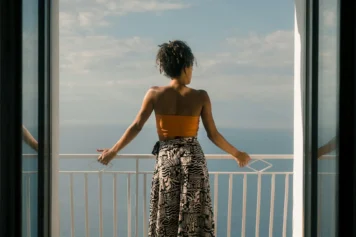A few miles past the last strip mall in this north coast town, a discreet sign beckons the privileged .01 percent down a lush ginger- and palm-frocked lane. It ends at a rushing wall of water flanked by a lily pond, a sleek, open-air pavilion, and a personal valet who greets new arrivals with a cold drink and whisks them via golf cart to spacious seaside digs.
If this isn’t perfection, it’s close. And it should be, considering that high-season rates at the new Dorado Beach, a Ritz-Carlton Reserve start at $1,499 a night. The resort, which opened in December, is the second in the chain’s new ultra-luxury Reserve brand. (The first is in Thailand; more are in the works in Mexico, Morocco and beyond.)
With its 114 oceanfront rooms (some with rooftop plunge pools), three golf courses, 5-acre spa (including two treehouse treatment rooms) and celebrity-chef restaurant (Mi Casa by José Andrés), the resort brings a new level of luxury to an island that in recent decades lost some of its luster.
But it’s not the only high-end newcomer. Waldorf-Astoria, W and St. Regis have arrived. In the works: J.W. Marriott and Four Seasons. And in San Juan, the Condado Vanderbilt, the island’s first luxury lodging when it opened in 1919, is getting a $220 million revamp after being shuttered for 16 years.
Tourism officials — and investors — are banking on Puerto Rico’s easy access (a three-hour, non-stop flight from New York), plus its diverse amusements (adventure, history, cuisine, golf, arts, entertainment) to attract a high-end clientele looking to do more than sit on the beach. And with the spate of new luxury digs, they say they’re now in a position to do so.
“Before, they’d land in Puerto Rico and keep on going,” says José Suarez, a former tourism director and president of the hotel company that owns the Condado Vanderbilt. “We’ve always had to overcome the West Side Story syndrome. But for many years, we had the who’s who of upper-echelon travelers. Then, for some reason, we let that business go to other islands.”
Tax credits and other incentives are helping to drive the luxury boom, notes Clarisa Jimenez, president of the Puerto Rico Hotel and Tourism Association. “The target was always more affluent travelers, but the problem was in getting the five-and six-star properties. It took us a little (time) but now everything is falling into place.”
Read more: USAToday


